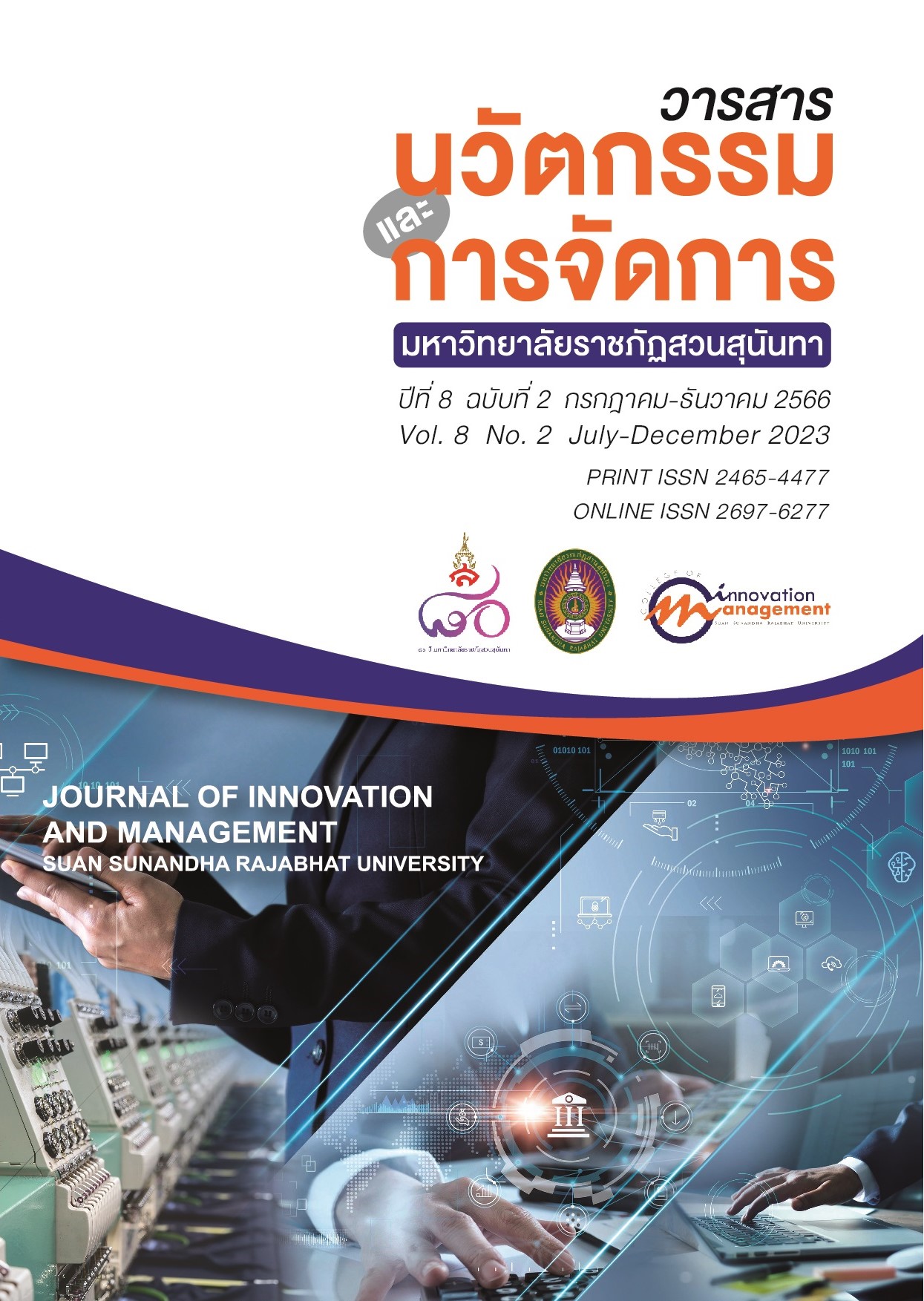Struggle of Karenni in Phetchaburi for Community Right under Thai State Context
Keywords:
Struggle, Karenni, Thai StateAbstract
This study aimed to (1) investigate the Thai nation-state in different contexts, including history, economic, and socio-cultural aspects in terms of the struggle of Karen in Phetchaburi, 2524 BC. – 2561 BC. Next (2), to explore the struggle of Karen against the laws, community rights, and identical culture. This study is qualitative research, and the data are collected using important documents, observation, in-depth interviews with key persons, and a group of 30 informants. The findings are as follows: (1) Regarding the contexts of the Thai nation-state in history, economic and socio-culture aspects through the struggle of the Karen, the Thai nation-state employed monopolistic centralization with Karen through four capitals, including physical capital, economic capital, informative capital, and symbolic capital. However, Karen people were capable of adapting to such circumstances, and the Thai nation-state gave them the opportunities to call for. Moreover, researchers found, (2) their struggle for indemnity was successful regarding the struggle of Karen against laws, community rights, and identical culture to create identity in the context of the Thai nation-state. Such a successful struggle was under pressure from the key mainstays, including Grandpa Kor-Ie, spiritual leader master Pod, and Billy, contributing to mobilizing the resources for their struggle. Once such resources were sufficient and the political opportunity structure was matured, Karen sued national park officials with full support from many different organizations. Moreover, the loss of Billy led them to struggle against community rights. Struggling against culture was also successful, and the Karen community has become a cultural tourist attraction and a significant landmark in Kang Krachan, Phetchaburi.
References
BBC. (2018). 9 August, World Indigenous Peoples Day: Stateless, lack of land, no economic opportunity. [Online]. Retrieved November 13, 2023, from: https://www.bbc.com/thai/thailand-45125322
Bourdieu, P. (1986). The Forms of Capital. Trans. Richard Nice. In John G. Richardson (ed.).
Handbook of Theory and Research for the Sociology of Education. New York: Greenwood.
Bourdieu, P. (1999). Rethinking the State: Genesis and Structure of the Bureaucratic Field. In George Steinmetz (ed.), State/Culture: State-Formation after the Cultural Turn. Itheca; Cornell University Press.
Chantawanich. S. (2009). Sociological Theory. Bangkok. Chulalongkorn University Press. (in Thai)
Chatuworaphruek, T. (1993). A Ritual to Inherit in Poverty Hill Tribe Ethnic: A Study of LISU Cultural Orientation in Chiang Mai Province. Thesis of the Degree of Master of Arts Program. Chiang Mai: Chiang Mai University. (in Thai)
Fuengfuengsakul, A. (2003). Identity, review of theories and conceptual frameworks. Bangkok. National Research Council of Thailand. (in Thai)
Habermas, J. (1987). The Theory of Communication Vol 2. Boston: Beacon Press.
Indigenous Peoples' Foundation for Education and Environment (IPF). (2015). Karen. [Online]. Retrieved November 13, 2023, from: https://ipf.or.th/?p=186
Johnston, H. (2011). States and Social Movements. Cambridge: Polity Press.
Khamphet, J. (2006). Cultural Capital of Ethnic Group. Bangkok. Life Long Learning Innovative Center. (in Thai)
Kosannan, J. (2002). Human rights without borders: philosophy, law, and social reality. Bangkok: Rule of law. (in Thai)
Lindblom, C. (1968). The Policy-Making Process. Englewood Cliffs, NJ: Prentice Hall.
McAdam, D. (1999). Political Process and the Development of Black Insurgency, 1930-1970. 2nd ed. Chicago: University of Chicago Press.
Poolsukho, S. (2019). Interview with Prof. Dr. Anan Kanchanaphan. [Online]. Retrieved November 13, 2023, from: https://www.ldi.or.th/2021/09/arnon_kanchanapun/ (in Thai)
Santasombat, Y. (2003). Karen's cultural capital and the political economy of symbolic power. Bangkok: Thailand Research Fund. (in Thai)
Sturgeon, J. (1998). State Policies, Ethnic Identity, and Forest in China and in Thailand. The common property resource digest. (n.p.)
Tarrow, Sidney. (2013). The Language of Contention: Revolutions in Words, 1688-2012. New York: Cambridge Press.
The Supreme Administrative Court Cases Aw Saw.77/2559 and Aw Saw.4/2561
Tilly, C. (1986). The contentious French. Cambridge, MA: Harvard University Press.
Woodward, Kathryn. (1997). Identity and Difference. London: SAGE.
Downloads
Published
How to Cite
Issue
Section
License
Copyright (c) 2023 Journal of Innovation and Management

This work is licensed under a Creative Commons Attribution-NonCommercial-NoDerivatives 4.0 International License.
See Publication Ethics https://so03.tci-thaijo.org/index.php/journalcim/Ethics






